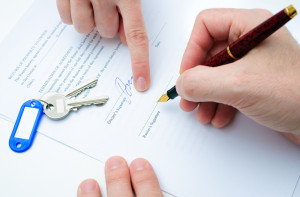How To Avoid Rental Property Issues
Any good landlord will tell you that you are only as good as your tenants. In addition to finding good tenants, however, it is also critical to protect yourself and your property at all times. This means taking measures before you commit to a new tenant. Conduct routine maintenance to make sure the property is working at full strength. You can never be totally sure that your tenant will pay on time, but you can do everything in your power to make sure the property is in working order. Tenant issues may always come up, but the more work you do before the lease begins, the more likely you will have a successful lease. Avoid rental property issues and make sure you do what you can to keep the property functioning appropriately. Finding a good tenant starts with the screening process. There are many inexperienced landlords who will start looking for tenants when their vacancy nears. With a vacancy looming, it is not uncommon for landlords to take the first interested tenant that comes their way. Without a full screening process, you may get lucky and find a great tenant, but you are at the mercy of whomever comes your way. You need to give yourself enough time to properly promote your property and generate interest. The more tenant options you have, the more likely you can find a good tenant. One of the best things about investing in real estate is that you can do it any way you like. As a rental property owner, you can control what type of information you want to get from the application. If you are not asking about current employment and past rental history, you are setting yourself up for trouble. Your application can be as detailed as you want. Getting the information alone is not enough. You need to follow up with any past landlords and inquire about current employment. The information on the application you create will go a long way in determining the strength or weakness of your prospective tenants. The best landlords know that if you spend time in the screening process you will end up with better tenants. Even the best tenants can go through unexpected tough times. The only items you have to protect yourself are the lease and the security deposit. It is not uncommon for tenants to try to negotiate a reduction in the amount needed when they sign the lease. If you are desperate and out of options, you may bend your rules in regards to the security deposit. However, if your tenant packs up and leaves in the middle of the night, you have no money to offset the loss. Whatever your state allows for security, enforce it, regardless of the situation. It is far better to go another week and wait to find a tenant that is qualified than to give the keys in the hopes they will have it after they move in. Your tenant may have a legitimate reason for not having all the required security, but you need to stay firm with your demands. It is the only thing you really have to protect yourself. If you think that all leases are the same, you sorely mistaken. The idea behind all leases is fairly universal: a lease will protect you if issues arise over the course of the lease. Your lease can be as generic as a one page document you find at Staples or as intricate as a 10 page form from your attorney. It may take some time to go through a bigger lease with your tenants, but you need your lease to protect you from anything and everything. Everything, from detailing the property condition to what would happen in the event of a fire, should be covered in your lease. Hopefully you will never need to revert to it, but things often happen that are out of your control. Weather issues, injuries and minor disputes can happen at any time. Your lease will be the item that mitigates these arguments and issues. If your lease is flimsy, you will have nothing to revert back to, rendering you exposed. If your lease is detailed, you will not have to deal with tenant complaints and inquires when they happen. By spending a little money on your lease, you can protect yourself from almost anything that can happen with your tenants and the property. The more upfront and honest you are with your tenants about expectations and procedures, the better success you will have. You need to reiterate what is truly important to you about the property and the lease. If you don’t allow smoking, you need to stress exactly what the consequences are if they smoke in the property. The same concept applies to late payments, noise complaints and parking issues. You need to pick and choose your battles, but you have to let your tenants know what is important to you and what really isn’t a big deal. You should toe the line between being friendly with your tenants and going too far. Anything that is concerning to you should be put on the table before they move into the property. There is a lot that can go wrong with a rental property, but most of these issues are brought on by landlords overlooking or omitting items before a tenant moves in. If you spend more time on screening and protecting yourself, you will have far less problems during the lease.